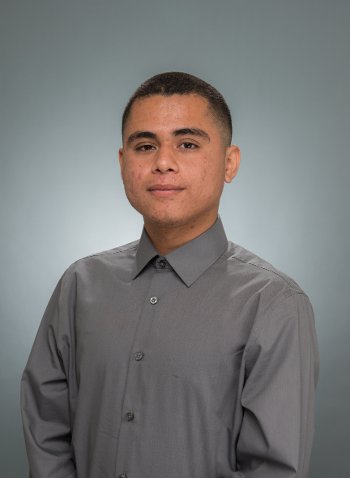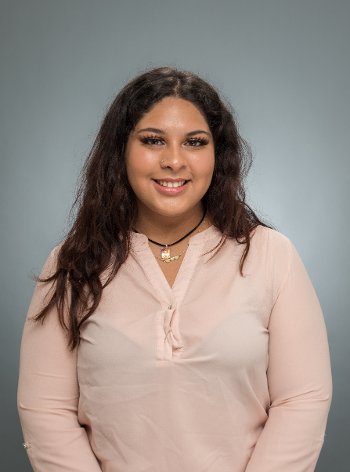Cohort 1 (2018-2020)
Latest News
Anthony Amaral

Hometown: Los Angeles, CA
Major(s): Chicano/a Studies and Criminal Justice
Graduate Interests: Gang Culture; Prison Politics; Chicano/a Studies
Scholarships and Academic Awards: Mellon Mays Undergraduate Fellowship
MMUF Mentor: Dr. Corina Benavides López
Research Project Title: “Criminalization, Drugs, and Prisons: Youth Future and Prison Profit”
The purpose of my research is to identify the school-to-prison pipeline and the effects it has on communities of color. This pipeline includes students of color who come from disadvantaged backgrounds and experience being incarcerated at a young age. Schools now have harsh polices to punish students, and zero-tolerance is one those policies. A zero-tolerance policy means that the school delivers harsh punishment to students when they violate any rules, which can result in quickly getting rid of students by expelling them or giving them a criminal record, which increases the chances of ending up in prison for a drug-related crime. The prison population is made of mostly black and Latino men, and the majority are serving for drug-related offenses. These prisons need bodies to fill in those empty spaces. I also analyze the role of law enforcement in capturing/arresting people of color and sending them to prisons to make a profit.

Tammy Hernandez
Hometown: Torrance, CA
Major(s): American Studies, Interdisciplinary Studies (IDS)
Graduate Interests: Chicano/a Studies; Immigration; Border Studies
Scholarships and Academic Awards: Mellon Mays Undergraduate Fellowship
MMUF Mentor: Dr. Annemarie Pérez
Research Project Title: “Sanctum Interrupted: A Comparison of the Ancient and Contemporary Concept of Asylum”
As the issue of sanctuary cities continues to be a focal target of the current administration, this topic is of urgent relevance. Given the most recent attempt to withhold federal funding to sanctuary jurisdictions, proponents of undocumented immigrant sanctuaries continue to oppose aggressive political campaign pledges. Tracking the history of providing sanctuary/refuge from an ancient idea fashioned by the church through to today’s heated debate about sanctuary policies, my research will contrast how the concept of sanctuary moved from a medieval idea of sanctuary which was related to religion and the power of the church into a secular movement. Comparing Héctor Tobar’s book The Tattooed Soldier with Linda Raven’s Sanctuary and Asylum: A Social and Political History, I will provide an assessment of the ever-changing idea of sanctuary. Moreover, as I will be using Los Angeles as a contemporary site for my analysis, I will also use The Tattooed Soldier and Helena María Viramontes’ essay “The Cariboo Café,” which are both set in Los Angeles, to further analyze the sanctuary city concept.

Porscha Singh
Hometown: Inglewood, CA
Major: Communications, Film and Media Studies
Graduate Interests: Media Representation; Women of Color Filmmakers; 21st Century Film/Television Analysis; Powerful Women in the Media Industry
Scholarships and Academic Awards: Dean’s List; 2018 Outstanding Junior for the Communication Department; Mellon Mays Undergraduate Fellowship
MMUF Mentor: Dr. Ryan Bowles Eagle
Research Project Title: “‘Oh, no you didn’t!’ The Visual Ideological Analyzation of the Angry Black Woman on TV and the Mentality Effects on African-American Women”
I examine the use of the Angry Black Woman (ABW) trope in two U.S. television shows: Scandal and Love and Hip Hop. Though these shows differ in genre, production context, cultural perception, and cast/viewership demographics, I argue that both shows rely on the Angry Black Woman trope. I review literature around the “Sapphire stereotype,” contextualizing the ABW in relation to its historical classification of black women, as well as literature focusing on media representation patterns of African-American women. By conducting a character analysis of both shows, I examine how they take this trope and use it for different purposes. I will conduct interviews with a diverse sample of African-American women (different ages, socio-economic backgrounds, and educational differences) and use story maps to better understand how these stereotypes impact them within social and professional settings as well as what the effect of this visual ideology has been on their mindset and self-esteem. I demonstrate the power behind the single narrative, which typically depicts African-American women in this way, and also show how the use of this trope across media representations marginalizes African-American women.
Other Interests: I enjoy cooking, working out, and catching up on my favorite shows—Queen Sugar and Pose are a couple of my current favorites. I love to travel. Recently, I participated in the Grand Kadooment Parade in Bridgetown, Barbados. My philanthropic interests include creating a non-profit to mentor young women of color. I also aim to continue cheer coaching.
 Lizbeth Zúñiga
Lizbeth Zúñiga
Hometown: Garden Grove, CA
Major(s): Chicanx Studies, Spanish Literature
Graduate Interests: Race and Identity; Gender; Queer Theory; Body Positivity; Xicana/x Feminisms
Scholarships and Academic Awards: Mellon Mays Undergraduate Fellowship
MMUF Mentor: Dr. Corina Benavides López
Research Project Title: “Queer Health-fulness: Dismantling Diet Culture in the U.S con Bocados (Mouthfuls)”
My current research will examine the ways in which first-generation, LGBTQIA+ Xicanx/Latinx students navigate and resist diet culture. I am interested in the convergence of identity and how systems of oppression uniquely impact certain groups of people; however, my intent is to avoid the deficit narrative that is so often attributed to these communities. It is imperative that we question the silencing of queer bodies in academic institutions, as well as the health rhetoric that is used to subordinate and undermine the existence of this community. I argue that queer, first- generation brown bodies retain a strong identity built on the ideas of resistance, healthfulness, community building, a love for each other and a love for taking huge bocados (mouthfuls) out of cis-heteronormativity.